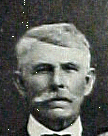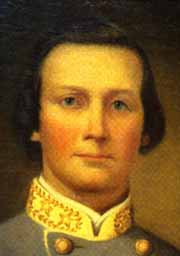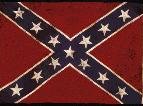South Carolina
C.S.A.


South Carolina
C.S.A.
|
South Carolina C.S.A.
|

|
|

|
South Carolina C.S.A. |
|
Company F Sixteenth South Carolina and Mary Hawkins Taylor |
|
Late of Holtzclaw's Company H, Palmetto Battalion Light Artillery Bowden's Company I, Palmetto Battalion Light Artillery Company F, Sixteenth South Carolina Volunteers |
|
W. P. Taylor As written by Wesley Perry Taylor I volunteered and on February 14, 1862, went to the army at Charleston, located at James Island, to Captain Harthorne’s Company A in White’s Battalion. Captain Harthorne’s Company was divided into two companies, I went with the new company under Captain Tom Holtzclaw. I was commissary sergeant and postmaster for the company. About the middle of March, I had measles and went to the hospital. I then came home on furlough and stayed ten days. About the first of the year, 1863, Captain Holtzclaw’s Company was divided with First Lieut. Dool Bowden. I went with the new company. I was made bugler of the company and remained commisary seargeant. About twenty-five men were stationed in the cut not far from Fort Sumter. The Yankees ran a gunboat up Stone River on the back side of James Island and landed at Dill’s farm and then came up to Summerville. We were on the cut between town and harbor. We had one brass cannon. Lieut. John Dill was in command. The first night of spring tide on full moon in May, Lieut. Dill exchanged coats with me and went to Charleston. He left me in command of the squad. Orders came from headquarters to put guard on cut. I put guard on cut and loaded cannon with canister balls. The early part of the night the Yankee Boat came down the cut. The guards fired their rifles at the boat. We fired the cannon and found that the boat contained dummies. The tide carried the boat into the harbor near Fort Sumter. The Yankees tried to shell Charleston and failed. They then went back to Black Island and shelled Charleston. Later on three companies of White’s Battalion was disbanded because they could not get cannons, horses, or provisions. They had to go to other companies. I went to Captain George Holtzclaw’s Company F, 16th Regiment in Atlanta twelve days before the Battle of Atlanta. Later at Jonesborough the Yankees charged us. They had seven men to our one but we won the battle. We had breast work made of fence rails. Before the battle a black hog came through the woods towards us about fifteen steps from the breast works. Captain Holtclaw had given the command for no one to fire as the Yankees were coming. I killed the hog. Captain Holtzclaw came down the line and asked who shot. No one answered. The hog lay until after the battle. We had had nothing to eat for three days except a few Irish potatoes roasted. Captain Holtzclaw, like some of the rest, was glad to get a piece of meat. At midnight we went back nine miles to Lovejoy Station. About sun-up we built fire in a gully and roasted meat on sticks.The Yankees charged us. We had to eat meat without salt and with the blood running out of it. We ran them back three miles, came back and built breast works. Up to our left, between us and the Yankees, was a fresh corn- field in September. I and six other men were detailed to cross this field to picket line to carry a message. We were on guard from 9 a.m. until 9 o’clock the next morning. The Yankees fired at us. All that saved me was falling down and crawling; then I would get up, walk a short distance, and then crawl again. Two were killed, three wounded, and two unhurt. I had nine holes in my clothes and blanket. We ran them back a second time. They went to Atlanta. We went about five miles and stayed until December. We were ordered to the west of Atlanta to cut off Yankee supplies. At Dalton, Georgia, we captured a fort with eleven hundred Negroes, guns, ammunition and provisions. We burned stores and railroad track. We left the railroad and went across sand mountain and crossed Tennessee River at Mussel Shoals on pontoon bridge. We had manila rope made of grass, three inches in diameter. It took eight horses to haul the rope. This rope was stretched across and fastened to each side around several trees. Boats were then fastened to this large rope, twelve feet apart with small ropes about one and one-half inches in diameter. Sleepers three inches thick, eight inches wide were placed across the boats and flooring on that. We crossed the river near the town of Florence and stayed about a week. They gave us new shoes. Mine were too small, I could not wear them they hurt my feet. When we left there, it was snowing. I went two days without shoes. We traveled the pike road which was graded like a railroad bed with rock four feet square. We went to a small town and the Yankees tackled us. We won the battle. They left and we followed so closely they had to leave horses, wagons, ammunition, and provisions which we captured. The Yankees went to Franklin and built breast works. We stopped at Columbus and from there went to Franklin, Tennessee. The Yankees were in picket pits. We ran them out to breast works and from there to town. They fired at us from windows or brick buildings. There were twenty-seven in Company F at breast works. There were seven of us left. Twenty were killed and wounded. There were fifty men in the company but some were tired and worried and could not keep up after three days of fighting and marching. My brother, Willis Taylor, was wounded and I had pnuemonia. They left us at a hospital in Franklin. About two weeks later the message came that the Confederate Army was defeated and for us to leave. We went three miles. It was raining hard so we slept in a man’s barn on some straw. Next morning we went to a corn mill and the man gave us some meal. We had it cooked. We went down the road to town and were given three pounds of shorts a piece. We crossed the river on an ambulance truck and went a few miles to a house and had some bread cooked. We spent the night in a smoke house. The man’s house was full of soldiers. We had nothing to eat except some walnuts. Next day we went to Shoal Creek about seven miles from Tennessee River. The bridge was gone; washed away in a heavy rain. We could not cross. We found corn that the calvary horses had left. We washed, parched and ate it. The next morning we found a place to cross. We tried to put down pontoon bridge but the rope pulled up trees. There were ambulance wagons with sick and wounded soldiers. I got on the lead mule on the front wagon. We went into the wash-out and the mules ears were out of the water. I was wet up to my waist. The mules pulled out. It was very cold and the day before Christmas. We dried by a log fire. We went several miles down the Tennessee River and crossed in boats, fourteen men to a boat and six horses fastened to a boat. We tried to kill some sheep but failed. We found some corn in a field, had it ground, built up a fire and made bread with water without sifting the meal or salting it. We went to the railroad and got on flat cars and went to Corinth, Miss. I laid down on the car and went to sleep. I was almost frozen. They carried me into the hotel and laid me down by the fire. We stayed there about ten days, until the army gathered there and got provisions. We marched sixty miles in two days. We stopped at Meridian, Miss. and stayed about a week. We went about seven miles to Tombigbee River and went up the river in boats and marched to Montgomery River and crossed. At Montgomery they had a long table of provisions for the army. We marched to Macon Ga. and from there to Augusta, crossed the river and camped in South Carolina. We then had a furlough for seven days. Then the army was going to Virginia. My feet were so sore from walking in snow and marching, I had to crawl. I was not able to go to Virginia. Brother Harvey Taylor went in my place. Lee surrendered before the army reached Virginia. Since that time my feet have given me trouble. |
|
Susan Finley Mary Hawkins, wife of Wesley Perry Taylor, was born 16 Sept 1843, daughter of Silas Raglin Hawkins and Nancy McClimons, in a log house near Greer SC. She and Wesley Taylor were married August 9, 1860 by the Rev. Ludwell Vaughn. They were living in a three room house which Wesley had built of logs, on the Greenville Road about a mile from where the Pleasant Grove Church is now. Wesley joined the Confederate Army in 1861 , serving as Commissary Sergeant his first two years in the PBLA, and was able to procure salt and other hard to find items for Mary. Mary continued to live in their house until bands of marauders roaming the countryside made it dangerous for her to stay there alone with her infant son. She went home to her mother for the last two years of the War. Wesley and Mary Taylor’s daughter Nannie Taylor Moon writes that when word came that Sherman’s scouts were scouring the state, the Hawkins family took their horses and silver deep into the pine forest about a mile from the house and hid it. When the soldiers did come, they took everything in sight; all the meat out of the smoke house, all the turkeys, chickens and geese. The horses and silver and other valuables were safe and later recovered. When Wesley returned from the War they moved back into their home on the Greenville Road. Mary Hawkins Taylor later told of an incident that occurred just after the war. She was driving home from her mothers’ house through a patch of woods and a hooded figure on a horse rode up to the side of the wagon and uttered a most unearthly scream and disappeared on a wooded side road. Mary was scared out of her wits, having her two children, one an infant, with her at the time. Mary Hawkins Taylor died 10 April 1911 and is buried at Pleasant Grove beside her husband. |
|
Wesley Taylor's Great Grandfather, Col. William Gibson, was an officer in the British Army and was sent to America during the Revolutionary War, where he lost his life. William's son, Samuel Gibson, was given a gold medal by Queen Charlotte, wife of King George III. He later had the medal made into two rings, for his sweetheart, and his mother. Samuel Gibson came to America in 1817 with his family, and settled in Greenville, where he became a renowned pastor; organizing over 30 churches in the State, including helping to organize, and becoming the first pastor, of First Baptist Church of Greenville. He later gave the two rings to his grandchild, Wesley Perry Taylor. Wesley had been given a UDC medal and lost it. Not wishing to ask the ladies for another, he had the rings made into a Confederate Cross which he wore proudly all of his life and passed on to his son. My thanks to Susan for this wonderful story. For more information about Wesley and his brother see the Roster of Company F. For more information about Company H of the Palmetto Light see, Captain Holtzclaw's Life Insurance Company. For Caper's Report on the Atlanta Battles see, The Hundred Days For Caper's Report on the 1864 Tennessee Campaign see, Ship's Gap and Franklin |

|
|
|

|